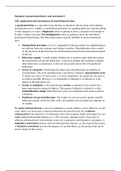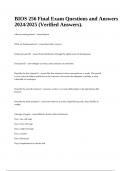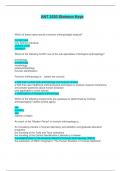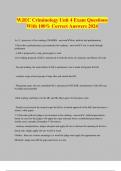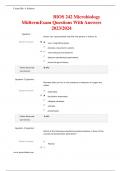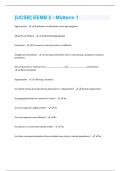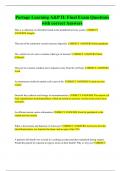Samenvatting
Summary Measurement Theory and Assessment 1 Year 1.4 Psychology
- Instelling
- Vrije Universiteit Amsterdam (VU)
This is a summary for the course Measurement Theory and Assessment 1 of the first year of psychology. The summary is based on information from the book Psychological Testing by Robert J. Gregory, the articles on Canvas, and information from the lectures. By studying with this summary, I received an...
[Meer zien]
